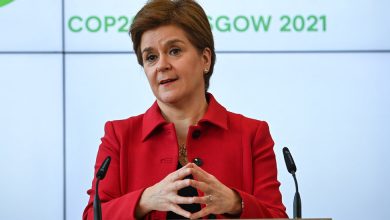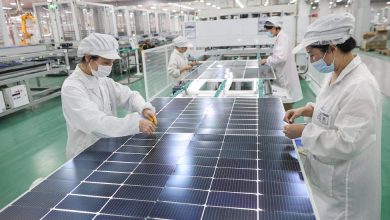Why You Might Buy Your Next Car Online

In 2019, many auto experts said Tesla was making a big mistake by deciding to sell cars only online, arguing that whatever bad feelings people had about dealerships they were essential to the car business.
But the strategy, which was adopted by Elon Musk, Tesla’s chief executive, and combines direct sales with a limited number of stores and service centers, appears to be proving the naysayers wrong. The company dominates the fast-growing electric car market even as other manufacturers struggle to sell cars because of a shortage of computer chips.
Tesla’s approach, which has been copied by other young electric carmakers like Rivian and Lucid Motors, could eventually have major ramifications for the auto industry. Most carmakers and auto dealers are earning rich profits right now because the shortage of new cars has pushed up prices for both new and used cars. Still, car companies and dealers may have to eventually adopt some of the changes Tesla has introduced to win over buyers who have grown used to buying cars online.
People who have traded in conventional cars for electric vehicles made by Tesla and newer companies said they were pleased with the experience and would consider buying future cars in the same way.
“Easiest big purchase of my life, crazy easy,” Rachel Ryan, who lives near Los Angeles, said about her 2021 purchase of a Tesla Model Y. “I bought it while my husband was at work,” she added. “When he came home, I told him he wouldn’t be driving my minivan anymore.”
Ms. Ryan said the only service problem she had was a flat tire from a nail. “Tesla came to my house to fix it,” she said. “Any questions I have, I just email, and they are on it within minutes.”
Buying online is a must for people looking to purchase an electric car made by Tesla, Rivian or Lucid, whose customers can buy only online and directly from the manufacturer. But online car shopping appeals to a large proportion of all car buyers, even those buying combustion-engine cars through dealerships, said Michelle Krebs, an executive analyst for Cox Automotive.
“Our data shows consumers want to do more of the process online but most don’t want to eliminate the dealer visit altogether,” Ms. Krebs said. “They just wanted the dealer experience to be something else — focused on the product, the features of the product and a test drive.”
She said some dealerships had started digitizing some or all of the buying process in the early days of the coronavirus pandemic, when showrooms shut down like other retail businesses. In Europe, some carmakers have gone even further. Daimler, Volkswagen and Volvo are selling cars directly to consumers or have announced plans to do so.
U.S. automakers have also signaled that they would like to make big changes. The chief executive of Ford Motor, Jim Farley, said at an investor conference this month that the company’s distribution and advertising costs per car were about $2,000 higher than Tesla’s. Mr. Farley said Ford wanted to sell electric cars only online at nonnegotiable prices without keeping a large inventory of cars at dealerships.
He added that dealerships would remain important but would have to become more “specialized.” He likened what is happening in the auto industry to the retail business, where the rise of Amazon forced established retailers to sell more on the internet and use physical stores in new ways.
“It’s kind of like what happened between Amazon and Target,” Mr. Farley said. “Target could have gone away, but they didn’t. They bolted on an e-commerce platform, and then they use their physical store to add groceries and make returns much easier than Amazon.”
Established automakers are unlikely to do away with dealerships for another reason: State laws often require them to sell cars through franchised dealers and can make it hard or impossible for automakers to deal directly with customers.
Tesla has lobbied state lawmakers to change laws governing auto sales and has gotten lawmakers in many places to allow the company and other automakers that never had dealerships to sell cars directly to customers.
But in some states like Texas, where Tesla is now based and has a factory, the company has struggled to persuade lawmakers to change laws and rules that favor dealerships. For example, Texas offers a $2,500 rebate to people who buy electric vehicles, but buyers of Teslas are not eligible because those cars are not sold by franchised dealerships.
The National Automobile Dealers Association, which represents dealers, has long opposed direct sales of cars and has urged lawmakers to require Tesla to use dealers, arguing that dealerships are vital to the auto industry and local economies. They have also said Tesla’s approach is much less convenient for car buyers and owners.
“We’re the face of the manufacturer in every small town in America,” Bill Fox, a former chairman of the association, told AutoGuide.com in 2015.
How Elon Musk’s Twitter Deal Unfolded
A blockbuster deal. Elon Musk, the world’s wealthiest man, capped what seemed an improbable attempt by the famously mercurial billionaire to buy Twitter for roughly $44 billion. Here’s how the deal unfolded:
The initial offer. Mr. Musk made an unsolicited bid worth more than $40 billion for the influential social network, saying that he wanted to make Twitter a private company and that he wanted people to be able to speak more freely on the service.
The response. Twitter’s board countered Mr. Musk’s offer with a defense mechanism known as a “poison pill.” This well-worn corporate tactic makes a company less palatable to a potential acquirer by making it more expensive for them to buy shares above a certain threshold.
Securing financing. Though his original offer had scant details and was received skeptically by Wall Street, Mr. Musk has been moving swiftly to secure commitments worth $46.5 billion to finance his bid, putting pressure on Twitter’s board to take his advances seriously.
Striking a deal. With the financing in place, Twitter’s board met with Mr. Musk to discuss his offer. The two sides soon reached a deal, with the social media company agreeing to sell itself for $54.20 a share.
Will the deal go through? For the purchase to be completed, shareholders have to vote first. Questions remain about Mr. Musk’s plans for the company, especially after he threatened to pull out of the deal if Twitter did not provide more information on how it calculates the number of fake accounts. On June 8, the company announced it planned to give him access to a large swath of its data.
The dealers association did not respond to a request for comment.
It’s not just dealers who have criticized Tesla. Some Tesla owners complain that repairing or fixing problems with their cars can be an ordeal.
The automaker operates about 160 service centers in the United States, which is far fewer than more established companies — Chevrolet, for example, has more than 3,000 dealerships nationwide. Tesla pledges to send a technician to customers’ homes for minor repairs, but bigger problems have to be dealt with by mechanics at the service centers.
James Klafehn of Ithaca, N.Y., hosts a YouTube channel that focuses on electric vehicles and related topics. He bought a Tesla in 2019 and has published videos documenting how hard it has been to get a variety of problems resolved because he lives several hours from a Tesla service center.
In an October 2019 video, he was scathing about the problems with his Model X sport utility vehicle, which included a hole in a panel and an indentation in a door’s weatherstrip. “I am not excited to make this video. I’ve been dreading it hoping for something positive to happen,” he said. “Unfortunately after five weeks of Model X ownership, the Tesla service experience has been very poor.”
Tesla did not respond to a request for comment.
Other owners who live far from Tesla service centers say the distance has not been a problem. That may be because electric cars tend to require less maintenance than combustion-engine vehicles.
Bill McGuire, the editor in chief of Mac’s Motor City Garage, a website for car enthusiasts, said he had driven 99 miles from his Toledo, Ohio, home to Clarkston, Mich., for a test drive at a Tesla store and subsequently picked his car up at a Tesla service center in Columbus, Ohio.
“It was my first online car buying experience — it was a bit of a surprise and mainly a pleasant one,” Mr. McGuire said. “Some people might want a lot more hand-holding.”
The only problem he encountered with his Model 3 was condensation in the taillights. Tesla sent a technician, and the taillights were replaced in his garage.
Other young electric car companies, like Rivian and Lucid, have even fewer showrooms and service centers than Tesla. Rivian has 19 in the United States, and Lucid has just 10, with seven more scheduled to open this year. That has not dissuaded tens of thousands of people from reserving cars made by the two companies.
Like Tesla, both automakers offer to send technicians to customers’ homes for minor repairs and say major repairs will be handled at service centers. To allay buyers’ fears that more substantial mechanic work could be a hassle, Lucid goes so far as to promise free transport to its nearest service center for cars needing major repairs.



